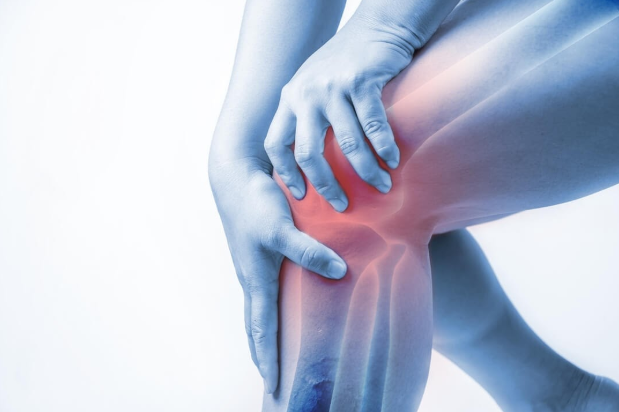

Knee Pain Is a Prevalent Issue Affecting People of All Ages, from Young Athletes to the Elderly. It Can Range from a Mild Discomfort to a Debilitating Condition That Significantly Impacts Daily Activities. the Knee, a Complex Joint Composed of Bones, Cartilage, Ligaments, and Tendons, Is Susceptible to Various Injuries and Degenerative Conditions.
Overuse Injuries: Repetitive Stress on the Knee, Often Associated with Sports or Physical Activities, Can Lead to Conditions Like Runner's Knee, Jumper's Knee, or Tendonitis.Arthritis: Osteoarthritis, the Most Common Type, Occurs When the Cartilage Cushioning the Ends of Bones Wears Down.
Rheumatoid Arthritis, an Autoimmune Disease, Can Also Affect the Knee Joint.Meniscus Tears: the Meniscus, a Rubbery Cartilage in the Knee, Can Tear Due to Sudden Twisting or Bending Movements.Ligament Injuries: the Acl, Mcl, and Pcl Are Ligaments That Stabilize the Knee Joint. They Can Be Injured Through Sports or Accidents.Bursitis: Inflammation of the Fluid-Filled Sacs (Bursae) Around the Knee Joint Can Cause Pain and Swelling.Referred Pain: Knee Pain Might Sometimes Originate from Other Areas, Such as the Hip or Lower Back.
Knee Pain Can Manifest in Various Ways, Including: a Dull, Aching Pain Sharp, Shooting Pain Swelling and Stiffness Difficulty Walking, Climbing Stairs, or Kneeling Locking or Giving Way of the Knee Tenderness to Touch
Accurate Diagnosis Is Essential for Effective Treatment. Healthcare Professionals Will Typically Conduct a Physical Examination, Review Medical History, and May Order Imaging Tests Like X-Rays, Mri, or Ultrasound. Treatment Options Depend on the Underlying Cause and Severity of Knee Pain. They May Include: Rest and Ice: Reducing Activity and Applying Cold Packs Can Help Alleviate Inflammation. Over-The-Counter Pain Relievers: Medications Like Ibuprofen or Acetaminophen Can Provide Temporary Relief. Physical Therapy: Exercises and Stretches Can Strengthen the Muscles Around the Knee, Improve Flexibility, and Reduce Pain.Braces or Supports: Knee Braces Can Help Stabilize the Joint and Protect It from Further Injury Corticosteroid Injections: Injections Can Reduce Inflammation in Severe Cases.Surgery: for Complex Injuries or Severe Arthritis, Surgical Interventions May Be Necessary.
While Not All Knee Pain Can Be Prevented, Certain Measures Can Help Reduce the Risk: Maintaining a Healthy Weight: Excess Weight Puts Added Pressure on the Knees Strengthening the Muscles Around the Knee: Regular Exercise Can Help Support the Joint. Proper Warm-Up and Stretching Before Physical Activity: This Can Help Prevent Injuries.Wearing Appropriate Footwear: Good Shoes Can Provide Proper Support and Cushioning.
If You Experience Persistent Knee Pain, It's Important to Consult with a Healthcare Professional for a Proper Diagnosis and Treatment Plan. Early Intervention Can Often Prevent the Condition from Worsening.Disclaimer: This Information Is Intended for General Knowledge and Informational Purposes Only and Does Not Constitute Medical Advice. Always Consult with a Qualified Healthcare Professional for Any Medical Concerns or Conditions.